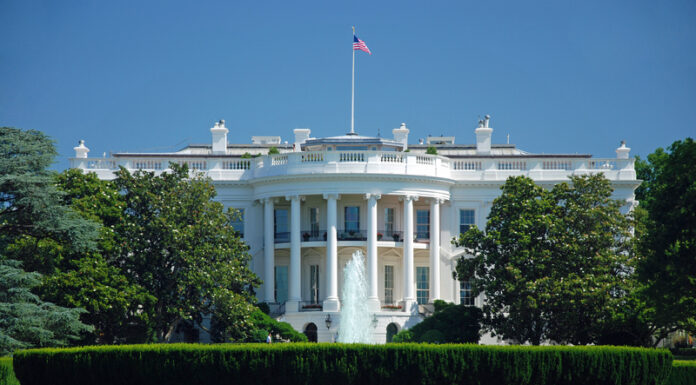The White House has launched an aggressive response to judicial challenges blocking President Donald Trump’s tariff policies, as courts continue to rule against the administration’s sweeping trade measures implemented earlier this year. The administration’s heated rhetoric has intensified following a series of legal setbacks that have undermined Trump’s signature economic policies.
A three-judge panel of the U.S. Court of International Trade ruled on Wednesday, May 28, that Trump overstepped his authority when he invoked the 1977 International Emergency Economic Powers Act to declare a national emergency and justify global tariffs. The ruling has left the legality of Trump’s sweeping tariffs in limbo, prompting the Trump administration to appeal the decision on Thursday, May 29.
The court determined that the Worldwide and Retaliatory Tariff Orders exceeded the authority granted to the President under the International Emergency Economic Powers Act (IEEPA) to levy tariffs on imports and recommended that the tariffs be nullified.
White House spokesperson Kush Desai responded sharply to the ruling, telling reporters that trade deficits have created a national crisis that has severely harmed American communities. Desai asserted that it is not the role of unelected judges to dictate how a national emergency should be addressed.
In a dramatic turn of events on Thursday, May 29, a federal appeals court temporarily allowed President Trump to continue enforcing tariffs under emergency powers while his administration works to appeal a decision that largely overturned his key economic measures. The court also ordered both sides to submit written arguments regarding the blockage of Trump’s tariffs, setting a June 5 deadline for the plaintiffs’ response and a June 9 deadline for the government’s reply.
The legal challenges come as Trump faces mounting criticism over his trade policies, including a viral Wall Street meme dubbed “TACO trade,” which stands for “Trump always chickens out.” The phrase was coined by Financial Times columnist Robert Armstrong and has spread across Wall Street and the internet, mocking the president’s pattern of announcing steep tariffs then backing down from initial demands.
When confronted about the acronym during an Oval Office session on May 28, Trump appeared visibly agitated. Trump stated, “Don’t ever say what you said. That’s a nasty question.” The president defended his decision to slash tariffs on China for 90 days and push back the deadline for 50 percent tariffs on European Union countries until July 9.
Trump’s tariffs, announced in April on what he called “Liberation Day,” overturned decades of U.S. trade policy and disrupted global commerce. The president initially imposed 145 percent tariffs on Chinese goods and a 10 percent minimum tax on all other countries. However, he quickly rolled back the China tariffs to 30 percent for a 90-day period while attempting to reach a new deal.
The administration’s confrontational approach extends beyond trade policy disputes. White House Press Secretary Karoline Leavitt called Amazon’s consideration of displaying tariff costs on products a “hostile and political act.” This prompted Trump to call Amazon founder Jeff Bezos directly to complain about reports that the company was considering showing tariff costs alongside product prices on its website.
Investors have begun engaging in what Wall Street calls “TACO trade” by purchasing stocks at lower costs after Trump announces new tariffs, then profiting when markets rebound as he delays or retreats from those policies. The strategy reflects market skepticism about the administration’s commitment to its stated trade positions.
The ongoing legal battles represent a significant challenge to Trump’s economic agenda and have contributed to continued market volatility. The Dow Jones closed nearly 250 points below its opening on May 28, reflecting investor uncertainty about the administration’s trade policies.
The administration’s heated responses to judicial oversight, media criticism, and international pushback have become a defining characteristic of Trump’s approach to governance during his second term. These confrontations have occurred across multiple policy areas, from trade and foreign relations to immigration and domestic affairs, establishing a pattern of aggressive rhetoric when facing institutional challenges.








